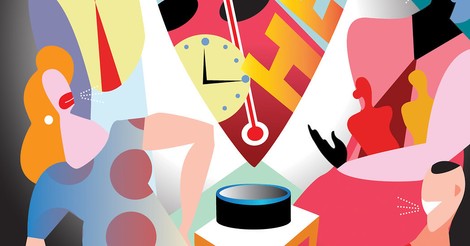Your podcast discovery platform
Curious minds select the most fascinating podcasts from around the world. Discover hand-piqd audio recommendations on your favorite topics.

piqer for: Global finds Technology and society Globalization and politics
Elvia Wilk is a writer and editor living in New York and Berlin, covering art, architecture, urbanism, and technology. She contributes to publications like Frieze, Artforum, e-flux, die Zeit, the Architectural Review, and Metropolis. She's currently a contributing editor at e-flux Journal and Rhizome.
Complex Consumer Affection For Amazon's Alexa Home-Bot
This ode to the Amazon home-bot Alexa takes the artificial intelligence’s personality into account—not just her abilities, but her quirks and failings. The focus of Penelope Green’s essay, which is entertaining and compelling, is on this technology’s quick integration into many people’s everyday lives. The story is one of uncanny affection.
She describes this relationship to Alexa as her being “a cross between a mistress and a nurse”, a role where one can’t help but recognize gendered tropes. And it seems the mechanical nature of this female caring figure is irrelevant to many consumers: “After a disquieting day, how nice to be greeted by a creature, digital or otherwise, that lights up at your approach.” (Those who have followed the intense love and loyalty bestowed upon robotic dogs in Japan, especially by retirees and house-bound individuals, won’t be surprised by this statement.)
Evolutionary psychologists say it’s impossible for us not to project intent onto devices that talk to us; we’ve never learned to speak to anything besides humans, and so we can’t help but anthropomorphize. All a computer needs for us to act kindly towards it is to have a voice-based interface we can interact with regularly. Green cites media researchers who claim that the voice is one of the deepest ways we learn to relate to another being from birth.
While much has been said about the femaleness projected onto artificial intelligence—made to be “smart, humble, helpful”, but never autonomous—one widow who says Alexa has helped her through her grief process sees it another way. “Of course, she’s a she, not an it, and God is a woman.”
